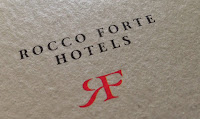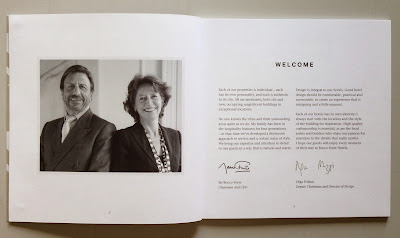This is certainly one of the best pieces of print that I've seen so far this year.
This publication, produced for Timberland, by Document Studios is a limited edition book which is designed to tell a story....
 |
| Click on images to enlarge |
This piece of literature is as much about the words as the images. Although the products have centre stage, it is set within 'the spirit and cultural context of the brand'.
The size of the book is 235x165mm, portrait, has a 132pp text with a 4pp limp cover and is section sewn. It is printed on our Redeem 100% Recycled 240gsm cover and 130gsm text. The paper is a neutral white shade gives the publication a 'booky' feel which really works with the images and most importantly, the pages which are purely type.
The quality of image reproduction is simply off the scale. I have never seen Redeem printed as well as this.In their own words.... "Document Studios is all about storytelling. We tell brand and product stories through unique editorial content, art direction and design. Set up by Editorial Director David Hellqvist and Creative Director/Designer Mark Thompson, Document Studios has three main objectives: to inspire, educate and create desire.
Commissioned by Timberland, the iconic American footwear and apparel brand, Hellqvist and Thompson set out to capture the true spirit of the brand.
Documenting the history and story of Timberland, the limited edition book looked closer at Timberland’s sub-cultural history. Through commissioned photography and interviews, pop cultural icons, such as Visvim’s Hiroki Nakamura, Gary Aspden, Ronnie Fieg and Stussy’s Nick Bower, offered their point of view of the brand, while designers like Patrik Ervell, Martine Rose and Soulland’s Silas Adler shared their personal experiences of the brand."
Here is the piece about Ronnie Fieg:
The publication is 132pp, section sewn text, with a 12mm wide spine: A particularly interesting feature is the cover, or rather the finish on the cover. Because this is more of an editorial publication, requiring a more magaziney feel, a lamination was considered to be a good idea for protection, however something more tactile and engaging was required....
A textured lamination finish was selected, which is a lamination film which already has a texture on the surface, hopefully you can see from the image below...
 |
| Click on image to enlarge |
http://justinsamazingworldatfennerpaper.blogspot.co.uk/2014/06/what-is-film-lamination.html
It is produced for Timberland by Document. Editorial Director is David Hellqvist and the Art Director is Mark Thompson.
Print production is by Push based in London. The quality of reproduction of these images on this paper has simply got to be seen to be believed, it is a truly stunning job.
www.timberland.com
www.mgtstudio.co.uk
www.push-print.com
Posted by Justin Hobson 28.05.2015































































